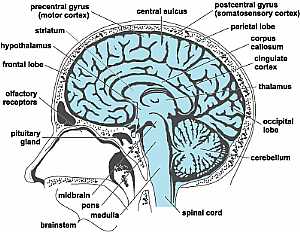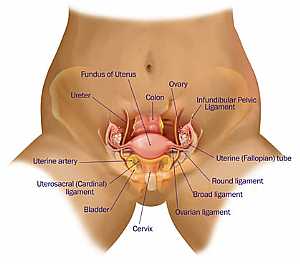Family & Children Health › The Pregnancy › Treatment for ivf
Are you worried that you may be infertile?
A detailed understanding of the many factors that cause infertility is the foundation on which a successful conception can be made to occur. Reading the following questions and answers is a good place to start your journey out of infertility.
Many couples naively expect they will get pregnant the very first month they try (the result of watching too many Hindi films, perhaps!) - and are concerned when a pregnancy does not occur. All of us go through a brief interlude of doubt and concern when we do not achieve pregnancy the very first month we try - and we start wondering about our fertility.
Social pressures also add to this stress. "So, when are you planning to have a baby?" This is the commonest question most newly married couples in India are asked - sometimes even as soon as they have returned from the honeymoon! There is a lot of pressure on couples to have a baby, especially in traditional families, where the wife's role is still seen to be one of perpetuating the family name by producing heirs.
Before worrying, remember that in a single menstrual cycle, the chance of a perfectly normal couple achieving a successful pregnancy is only about 25%, even if they have sex every single day. This is called their fecundity which describes their fertility potential. Humans are not very efficient at producing babies!
There are many reasons for this, including the fact that some eggs don't fertilize and that some of the fertilized eggs ( embryos) don't grow well in the early developmental stage because of a random genetic error.
it's impossible to predict when an individual couple will get pregnant! However, over a period of a year, the chance of a successful pregnancy is between 80 and 90%, so that 7 out of 8 couples will be pregnant within a year. These are the normal "fertile" couples - and the rest are "labeled" infertile - the medical text book definition of infertility being the inability to conceive even after trying for a year.
Primary infertility and secondary infertility
Couples who have never had a child, are said to have "primary infertility", while those who have become pregnant at least once but are unable to conceive again, are said to have "secondary infertility."
The approach to both types of infertility is very similar. However, patients with secondary infertility have a better prognosis, because they have proven their fertility in the past.
The chances of pregnancy for a couple in a given month will depend upon many things, and the most important of these are:
The age of the woman and frequency of intercourse. At the biologic clock ticks on, the number of eggs and their quality starts decreasing.
Avoid being unnecessarily miserable about infertility, choose a positive attitude. Here are some 'misery traps' to look out for.Being infertile is bad enough - but unfortunately many infertile couples compound their misery by adding to it.
Isolate yourself. Isolating yourself makes it much easier to forget that no matter how serious your problem is, there are always people who have it much worse. While knowing that won't make your infertility better, it will help put it in perspective.
If you have been having sexual intercourse two or three times a week at about the time of ovulation, without any form of birth control for a year or more and are not pregnant, you meet the definition of being infertile.
Pregnancy may still occur spontaneously, but from a statistical point of view, the chances are decreasing and you may now want to start thinking about seeking medical help.
There is no "right" time to do so - and if it is causing you anxiety and worry, then you should consult a doctor. Even though you may be embarrassed and feel that you are the only ones in the world with the problem, you are not alone. Many couples experience infertility and many can be helped.
Unfortunately, while infertility is always an important problem, it is usually never an urgent one.Tragically, many find that time flies, and before they realize it, their chances of getting pregnant have started to decline, even before they have had a chance to take treatment properly.
Set your priorities, so that you have peace of mind that you tried your best. After all, if you don't take care of your own infertility problem, who will ?
Kicking yourself when you are 50 years old for failing to take treatment when you were younger will not help. Remember that everything in life comes back, except for time!
There are certain conditions that warrant seeing a doctor sooner:
1.Periods at three-week (or less) intervals
2.No period for longer than three months
3.Irregular periods
4.A history of pelvic infection
5.Two or more miscarriages
6.Women over the age of 35 - time is now at a premium !
7.Very painful periods
8.Endometriosis
9.Pelvic inflammatory disease
10.Men who have had prostate infections
11Men whose testes are not felt in the scrotum
The first step should be to achieve an accurate diagnosis to try to find out why pregnancy isn't occurring. Once a diagnosis has been determined, the couple and physician should talk again about a treatment plan. For difficult problems, referral to an infertility specialist always suggested.
Rotunda Infertility Clinic, IVF Fertility Center in India provides Patient Friendly,Affordable In Vitro fertilization treatment to Infertile couples around the world. Rotunda Fertility Center provides world class IVF treatment to its patients.
Find out what your most effective treatment options are, from one of the world's best IVF clinics.Rotunda Infertility Clinic, a Fertility Center in India offers IVF ( In Vitro Fertilization ) Treatment to Infertile couples from all over the world. The cost of IVF treatment in India is one fourth the cost of IVF in US clinics and other parts of the world.
Rotunda Infertility Clinic provides state-of-the-art IVF treatment at affordable prices in a comfortable atmosphere
and offers all the newest reproductive techniques, including IVF, ICSI, laser assisted hatching, embryo freezing, egg donation, PGD , embryo biopsy, and blastocyst transfer.
contacting Rotunda Clinic:All Appointments are scheduled according to your convenience at Rotunda Fertility clinic
You can contact for further assistance at http://wewantababy.com or http://www.iwannagetpregnant.com or http://www.rotundaivf.com or www.rotunda.co.in or email at rotunda.tchr@gmail.com or simply a phone call at +91 22 2655 2000 or +91 22 26405000.
What is IVF? Basics on In Vitro Fertilization Treatment
ivf, in vitro treatment, infertility, ivf risks, ivf costs
Learn the basics of IVF treatment, including IVF procedures, risks, costs, and success rates.
Know all about IVF Procedure, IVF Cycle, IVF Cost and Starting treating infertility at http://ivftreatmentindia.wordpress.com
A detailed understanding of the many factors that cause infertility is the foundation on which a successful conception can be made to occur. Reading the following questions and answers is a good place to start your journey out of infertility.
Many couples naively expect they will get pregnant the very first month they try (the result of watching too many Hindi films, perhaps!) - and are concerned when a pregnancy does not occur. All of us go through a brief interlude of doubt and concern when we do not achieve pregnancy the very first month we try - and we start wondering about our fertility.
Social pressures also add to this stress. "So, when are you planning to have a baby?" This is the commonest question most newly married couples in India are asked - sometimes even as soon as they have returned from the honeymoon! There is a lot of pressure on couples to have a baby, especially in traditional families, where the wife's role is still seen to be one of perpetuating the family name by producing heirs.
Before worrying, remember that in a single menstrual cycle, the chance of a perfectly normal couple achieving a successful pregnancy is only about 25%, even if they have sex every single day. This is called their fecundity which describes their fertility potential. Humans are not very efficient at producing babies!
There are many reasons for this, including the fact that some eggs don't fertilize and that some of the fertilized eggs ( embryos) don't grow well in the early developmental stage because of a random genetic error.
it's impossible to predict when an individual couple will get pregnant! However, over a period of a year, the chance of a successful pregnancy is between 80 and 90%, so that 7 out of 8 couples will be pregnant within a year. These are the normal "fertile" couples - and the rest are "labeled" infertile - the medical text book definition of infertility being the inability to conceive even after trying for a year.
Primary infertility and secondary infertility
Couples who have never had a child, are said to have "primary infertility", while those who have become pregnant at least once but are unable to conceive again, are said to have "secondary infertility."
The approach to both types of infertility is very similar. However, patients with secondary infertility have a better prognosis, because they have proven their fertility in the past.
The chances of pregnancy for a couple in a given month will depend upon many things, and the most important of these are:
The age of the woman and frequency of intercourse. At the biologic clock ticks on, the number of eggs and their quality starts decreasing.
Avoid being unnecessarily miserable about infertility, choose a positive attitude. Here are some 'misery traps' to look out for.Being infertile is bad enough - but unfortunately many infertile couples compound their misery by adding to it.
Isolate yourself. Isolating yourself makes it much easier to forget that no matter how serious your problem is, there are always people who have it much worse. While knowing that won't make your infertility better, it will help put it in perspective.
If you have been having sexual intercourse two or three times a week at about the time of ovulation, without any form of birth control for a year or more and are not pregnant, you meet the definition of being infertile.
Pregnancy may still occur spontaneously, but from a statistical point of view, the chances are decreasing and you may now want to start thinking about seeking medical help.
There is no "right" time to do so - and if it is causing you anxiety and worry, then you should consult a doctor. Even though you may be embarrassed and feel that you are the only ones in the world with the problem, you are not alone. Many couples experience infertility and many can be helped.
Unfortunately, while infertility is always an important problem, it is usually never an urgent one.Tragically, many find that time flies, and before they realize it, their chances of getting pregnant have started to decline, even before they have had a chance to take treatment properly.
Set your priorities, so that you have peace of mind that you tried your best. After all, if you don't take care of your own infertility problem, who will ?
Kicking yourself when you are 50 years old for failing to take treatment when you were younger will not help. Remember that everything in life comes back, except for time!
There are certain conditions that warrant seeing a doctor sooner:
1.Periods at three-week (or less) intervals
2.No period for longer than three months
3.Irregular periods
4.A history of pelvic infection
5.Two or more miscarriages
6.Women over the age of 35 - time is now at a premium !
7.Very painful periods
8.Endometriosis
9.Pelvic inflammatory disease
10.Men who have had prostate infections
11Men whose testes are not felt in the scrotum
The first step should be to achieve an accurate diagnosis to try to find out why pregnancy isn't occurring. Once a diagnosis has been determined, the couple and physician should talk again about a treatment plan. For difficult problems, referral to an infertility specialist always suggested.
Rotunda Infertility Clinic, IVF Fertility Center in India provides Patient Friendly,Affordable In Vitro fertilization treatment to Infertile couples around the world. Rotunda Fertility Center provides world class IVF treatment to its patients.
Find out what your most effective treatment options are, from one of the world's best IVF clinics.Rotunda Infertility Clinic, a Fertility Center in India offers IVF ( In Vitro Fertilization ) Treatment to Infertile couples from all over the world. The cost of IVF treatment in India is one fourth the cost of IVF in US clinics and other parts of the world.
Rotunda Infertility Clinic provides state-of-the-art IVF treatment at affordable prices in a comfortable atmosphere
and offers all the newest reproductive techniques, including IVF, ICSI, laser assisted hatching, embryo freezing, egg donation, PGD , embryo biopsy, and blastocyst transfer.
contacting Rotunda Clinic:All Appointments are scheduled according to your convenience at Rotunda Fertility clinic
You can contact for further assistance at http://wewantababy.com or http://www.iwannagetpregnant.com or http://www.rotundaivf.com or www.rotunda.co.in or email at rotunda.tchr@gmail.com or simply a phone call at +91 22 2655 2000 or +91 22 26405000.
What is IVF? Basics on In Vitro Fertilization Treatment
ivf, in vitro treatment, infertility, ivf risks, ivf costs
Learn the basics of IVF treatment, including IVF procedures, risks, costs, and success rates.
Know all about IVF Procedure, IVF Cycle, IVF Cost and Starting treating infertility at http://ivftreatmentindia.wordpress.com
Article By: Rotunda Ivf
Get pregnant with Endometriosis
What is Diminishing Ovarian Reserve (DOR)?
Facts to know about effects of Smoking on Fertility, Infertility & IVF
Infertility, IVF and Stress
Weight of parents during conception hampers Childs fertility
Test Tube Baby Centre
Weird things that can mess up with your fertility
Most Read
New Articles
Most Viewed
Most Downloads
 Basal Cell Carcinoma ("Rodent Ulcer" Type)
Basal Cell Carcinoma ("Rodent Ulcer" Type)
 Basal Cell Carcinoma (Histology-Morpheaform Type)
Basal Cell Carcinoma (Histology-Morpheaform Type)
 Basal Cell Carcinoma (Histology-Nodular Type - High power)
Basal Cell Carcinoma (Histology-Nodular Type - High power)
 Basal Cell Carcinoma (Histology-Nodular Type- High power)
Basal Cell Carcinoma (Histology-Nodular Type- High power)
 Skin
Skin
 Nervous System -- Basic
Nervous System -- Basic
 Brain anatomy
Brain anatomy
 Brain anatomy
Brain anatomy
 Brain anatomy
Brain anatomy
 Brain anatomy
Brain anatomy
 Head anatomy
Head anatomy
 Brain anatomy
Brain anatomy
eDoctorOnline.com does not provide medical advice, diagnosis or treatment.
© Copyright 2001-2022 eDoctorOnline.com
© Copyright 2001-2022 eDoctorOnline.com

 Nose anatomy
Nose anatomy Humerus bone
Humerus bone Eye anatomy
Eye anatomy Coronary arteries anatomy
Coronary arteries anatomy Female pelvic anatomy
Female pelvic anatomy Heart and lung anatomy
Heart and lung anatomy Bones and ligaments of the FEMALE Pelvis
Bones and ligaments of the FEMALE Pelvis Neck Anatomy
Neck Anatomy MidBrain anatomy
MidBrain anatomy Oral Cavity
Oral Cavity Stomach anatomy
Stomach anatomy Lung anatomy
Lung anatomy Basal Cell Carcinoma ("Rodent Ulcer" Type)
Basal Cell Carcinoma ("Rodent Ulcer" Type) Basal Cell Carcinoma (Histology-Morpheaform Type)
Basal Cell Carcinoma (Histology-Morpheaform Type) Basal Cell Carcinoma (Histology-Nodular Type - High power)
Basal Cell Carcinoma (Histology-Nodular Type - High power) Basal Cell Carcinoma (Histology-Nodular Type- High power)
Basal Cell Carcinoma (Histology-Nodular Type- High power) Skin
Skin Nervous System -- Basic
Nervous System -- Basic Brain anatomy
Brain anatomy Brain anatomy
Brain anatomy Brain anatomy
Brain anatomy Brain anatomy
Brain anatomy Head anatomy
Head anatomy Brain anatomy
Brain anatomy
Be the first one to comment on this article!